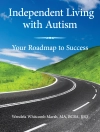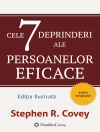Selected for Reading Well for Dementia 2024: endorsed by health experts, charities and people affected by dementia.
Drawing on the author’s first-hand experiences with families, this book provides crucial, accessible information and answers the difficult questions that often arise when a family member with an intellectual disability is diagnosed with dementia.
Linking directly to policy and practice in both dementia and intellectual disability care, this book takes an outcome-focussed approach to support short, medium and long-term planning. With a particular emphasis on communication, the author seeks to ensure that families and organisations are able to converse effectively about a relative’s health and care. The book looks at how to recognise when changes in the health of a relative with an intellectual disability could indicate the onset of dementia, as well as addressing common concerns surrounding living situations, medication and care plans. Each chapter is structured to identify strategies for support whilst working towards outcomes identified by families as dementia progresses.
Table des matières
Introduction. 1. Recognising changes in health. 2. Strategies for support. 3. How to talk to a relative about their changing health and about dementia. 4. What will happen in the future?. 5. Conclusion. Further information.
A propos de l’auteur
Karen Watchman is Senior Lecturer in Ageing, Frailty and Dementia at the University of Stirling, Scotland, UK. She has worked in intellectual disability, ageing and dementia care for over twenty years in both practice and academic settings. Making research accessible has always been a core part of Karen’s work and in addition to research and teaching activities, she regularly delivers training and lectures on this topic in the UK and internationally. She lives in Clackmannanshire, Scotland.












